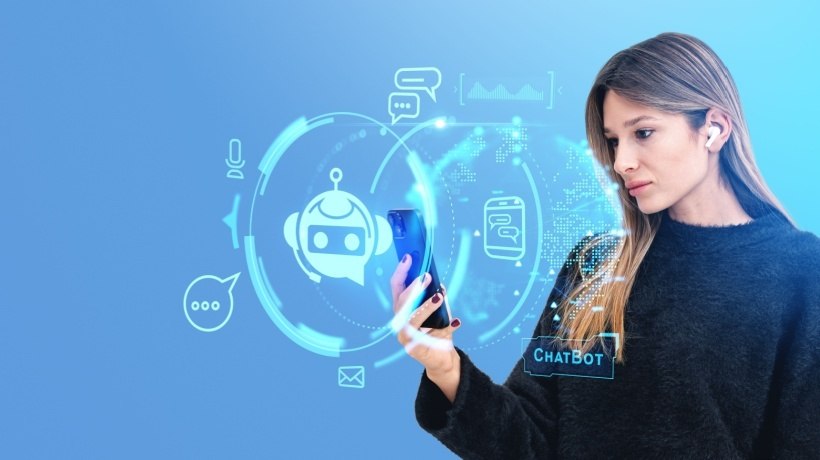Increased Use Of Artificial Intelligence
Artificial Intelligence is becoming more and more involved in every aspect of our lives. It has penetrated the functions and features of almost every piece of technology we use today. Therefore, AI has enormous potential when it comes to changing the landscape of eLearning as well.
The most widely recognized use of Artificial Intelligence is its inclusion in various voice-assistant software, such as Alexa or Siri. AI helps companies personalize the user experience on smart devices, but it could also help improve LMS platforms' teaching capabilities.
AI-powered Learning Management Systems can tailor the teaching experience, bringing more tangible results while reducing student anxiety and burnout.
Artificial Intelligence In Academics
The most exciting method for achieving a fully-personalized learning experience is that AI can help deliver customizable virtual tutoring to students regardless of their age and level.
It can facilitate communication and collaboration between classmates, as well as students and teachers. It can also increase engagement and improve efficiency in classroom-based learning scenarios.
Artificial Intelligence In Corporate Learning
AI is also highly useful in corporate scenarios as it can contribute to improved corporate learning in various ways. Artificial intelligence not only facilitates global interaction but helps personalize L&D (Learning and Development).
Learning and Development software can use AI to predict the behavior of corporate learners and recommend training and learning content accordingly.
Another aspect in which AI will fit the modern approach to corporate learning is by adapting to microlearning culture—creating bite-sized lessons that employees can consume throughout the day.
Improved Chatbots
Piggybacking on the previous section, we have chatbots. This trendy innovation in mobile technology is one of the essential components of AI. Chatbots can help boost the eLearning process by providing academic students and corporate professionals with a personalized learning experience.
Academic Chatbots
As we mentioned above, chatbots can help learners by creating a more personalized experience. They can do this by allowing students access to personalized chat-based messaging.
A mobile chatbot can assess the level of a student's understanding through chat-based interaction and understand their ability to absorb different types of information. It can also simplify discussions between students within a class, and their communication with teachers, facilitating two-way feedback and building a more collaborative environment.
Learning And Development Chatbots
Chatbots are the future of training and development in corporate settings. Firstly, they will help put employees' skills and knowledge to better use, improving efficiency and employee retention.
We already have chatbots in business messaging apps helping in various ways, such as adding reminders of unfinished tasks to conversations when needed most. Aside from this, chatbots can help collect data, introduce new company policies, track goals, etc.
Gamification Of Learning
Gamification is hardly a novel concept for mobile application developers. Successful mobile app development companies have been using Virtual and Augmented Reality software for years.
This technology can be used in eLearning in various ways, from integrating 360-degree video to real-time learning to combining motion and 3D effects to create more immersive experiences.
VR headsets like the Oculus Quest and HTC Vive allow users to paint, model, and create 3D objects in a virtual environment. Further advancements in this technology will enable developers to create fully immersive AI-based learning experiences, reducing the need for direct student-teacher interaction.
Gamification Of Learning In An Academic Environment
Gamification can make complex subjects like science, physics or chemistry, more tangible and easier to grasp. A gamified learning approach can add a crucial element of fun to the otherwise dull and mundane subject material, facilitating engagement and improving retention.
Finding the right balance between fun and learning is not easy, but an eLearning app that can manage to find it is guaranteed to achieve success in this environment.
Gamification Of Learning In A Corporate Environment
eLearning app developers can build feature-rich products facilitating gamified corporate training. Such training aims to boost knowledge retention and corporate learner engagement and improve employee performance overall.
Gamified solutions can help employees learn how to engage with clients more effectively, as well as understand the functions and features of a specific product more clearly.
Potential Of Machine Learning
We already talked about the ability of predictive AI to determine a student's academic potential and learning preferences. However, Machine Learning can do a lot more, such as predicting whether a student will drop out during the current semester, for example.
This type of foresight can help eLearning app developers prepare customizable learning solutions that could adapt to the learner and boost their engagement. Depending on the student, the curriculum can integrate personalized content, including visual and audio materials, as well as video.
In corporate training, this AI-based approach can be incorporated into HR systems as well as LMS tools. As Machine Learning can provide exceptional automation and data analysis, companies can significantly improve employee engagement through its use.
Analytical patterns and pre-set algorithms will boost employee performance with the help of various Machine Learning components, including ensemble models, ordinary least squares regression, and decision trees, to name a few.
Building Immersion With Wearables
Wearable devices have the potential to take eLearning to the next level. These smart devices are initially more likely to be used in corporate training due to costs, allowing immersive simulations of training experiences. This will enable users to adopt new training elements and get fully immersed in their learning, applying what they've learned in true-to-life scenarios.
In some cases, such as sales, logistics, and supply, wearables can continue to help post-training scenarios, whereby professionals could use them for troubleshooting problems.
Although it could be some time before we see the first wearable devices widely adopted in the academic sector, their arrival is inevitable. Integration of wearables into mobile apps threatens to reshape the eLearning scenario as a whole, making it more efficient and more fun for users.
We've already seen the traditional educational market shaken up by eLearning giants such as Coursera and Udemy. This revolution did not happen overnight either, but that doesn't make it any less impactful.
Conclusion
eLearning technology is an absolute game-changer in both corporate and academic learning. Organizations that choose to ignore these trends are unlikely to remain competitive for long.
Mobile learning apps can help businesses and schools offer high-quality education at a reduced cost, 24/7. The trends we've outlined in this article will contribute to the growth of this sector, ensuring the success of eLearning for years to come.








